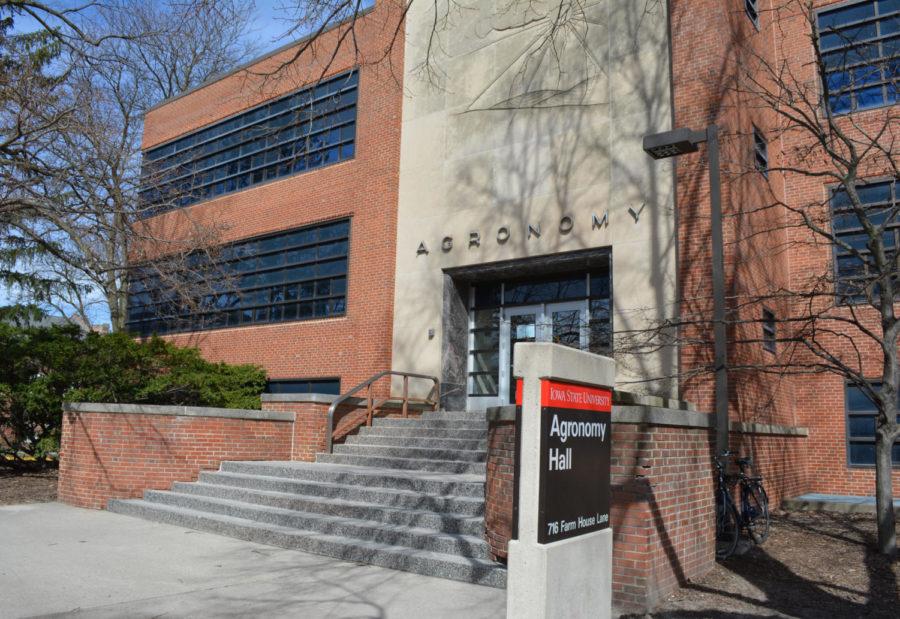Students can do small things to go green
September 26, 2007
“Green” has become a buzz word in our culture. Politicians talk about it, celebrities endorse it and consumers are starting to live by it. But although going green is now something trendy, the concept behind it is helping the environment.
“I think there are a lot of things students can do,” said Brian Bonanno, junior in history.
He said students may think they can’t have a positive impact on the environment because they are only one person.
“If enough people get behind it, it can definitely happen,” Bonanno said.
He suggested several changes people can easily make in their lives, such as reusing plastic grocery bags and replacing regular bulbs with energy-efficient bulbs.
Students can also make simple lifestyle changes in what they eat and how they use water and transportation. Recycling is another way students can easily implement living green into their lifestyle.
Food
There are many choices on the market for consumers who want to buy environmentally friendly food products. Farm to Folk Collaborative is a local program that strives to do just that. People buy shares in a community-supported agriculture farm and, in turn, receive a portion of the harvest. Products available through the program include vegetables, herbs, fruits, dairy and meat products. People can also order products through the program’s a la carte system.
Marilyn Andersen, co-coordinator of Farm to Folk, said the prices are comparable or favorable to organic foods sold in grocery stores, but the foods sold through Farm to Folk have another advantage.
“The food you get from Farm to Folk is often harvested the same day,” Andersen said.
In addition to being fresh, the farmers in the program use organic and low-input methods. Farmers using this method don’t rely on chemicals, herbicides or pesticides.
Supporting a program like Farm to Folk is not only a way to live green, but it is also beneficial to the local community and economy.
“They’re trying to facilitate people getting local food,” Andersen said, “and also support local growers.”
Water conservation
Often in the Midwest, we don’t think about water shortages because we have a high level of availability, unlike other parts of the country.
“Just because we have an adequate supply of water doesn’t mean we shouldn’t be concerned of how we use that water,” said Christina Murphy, assistant director of water and pollution control for the city of Ames.
Using less water means a lower utility bill, but saving money is not the only benefit to conserving water
Murphy said water is a limited resource. To educate people about the importance of conservation, the city of Ames has launched a campaign called Smart Water. Murphy said there are many things emphasized in the campaign that students can do to conserve water. She suggests taking shorter showers, running full loads in the washing machine and dishwasher and fixing leaky faucets and toilets.
Transportation
While buying a hybrid car may not be feasible, there are other ways students can help reduce air pollution. One option is to carpool or share rides with friends when possible. Another option for people in the Ames community is to take a bus. CyRide is not only a convenient service, but it also allows for fewer cars to be on the road, which means pollution can be reduced and resources conserved.
“It’s less traffic on the roads, much less pollution,” said Karen Jamison, CyRide’s assistant director for operations.
There are CyRide routes all over Ames, and the buses run frequently. Jamison encourages people who are unsure if CyRide will work for them to give it a try. She said if you take the bus, you don’t have to worry about parking or if the road are going to be bad, especially in the winter.
“A lot of people find it’s more convenient than they think,” Jamison said.
Recycling
Recycling can go beyond cans and newspapers. The city of Ames Web site has a list of items that can be recycled and where they can be dropped off. John Pohlman, superintendent of the resource recovery plant, said some of the things that can be recycled through their program are glass, fluorescent light bulbs, batteries and motor oil.
Recycling cans and bottles is not only good for the environment, but it also can help you make a little extra cash. Most grocery stores in Ames redeem nickel cans and bottles. You can get a nickel for each qualifying can and bottle you return. Cans and bottles can also be brought to the Ames Area Redemption Center, 1822 E. Lincoln Way.
There are newspaper recycling bins located throughout campus. These are convenient places to toss your newspaper to ensure it will be recycled, instead of throwing it in the trash.
















